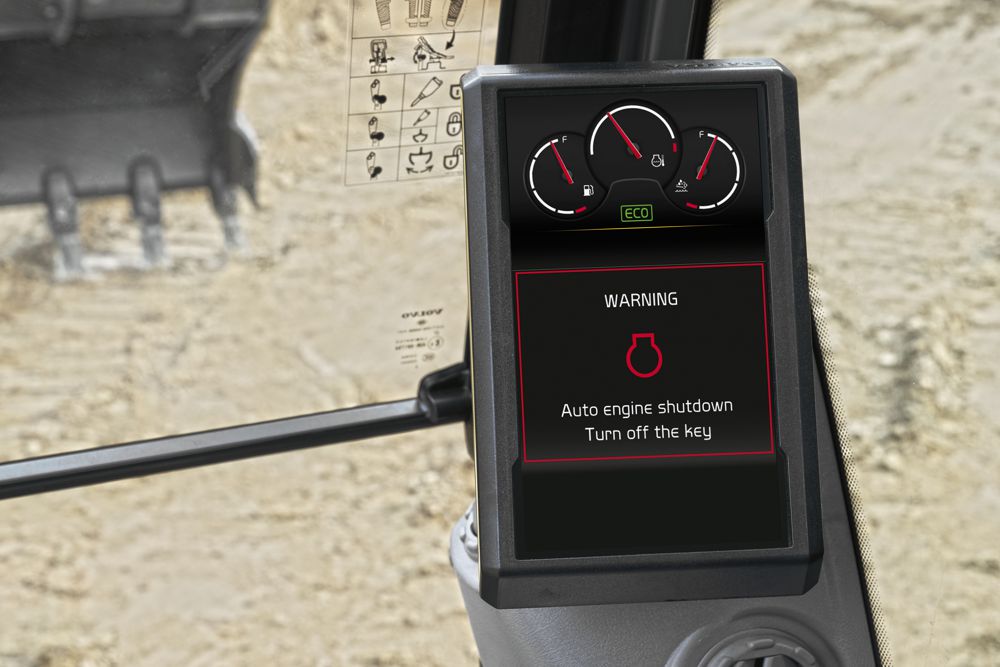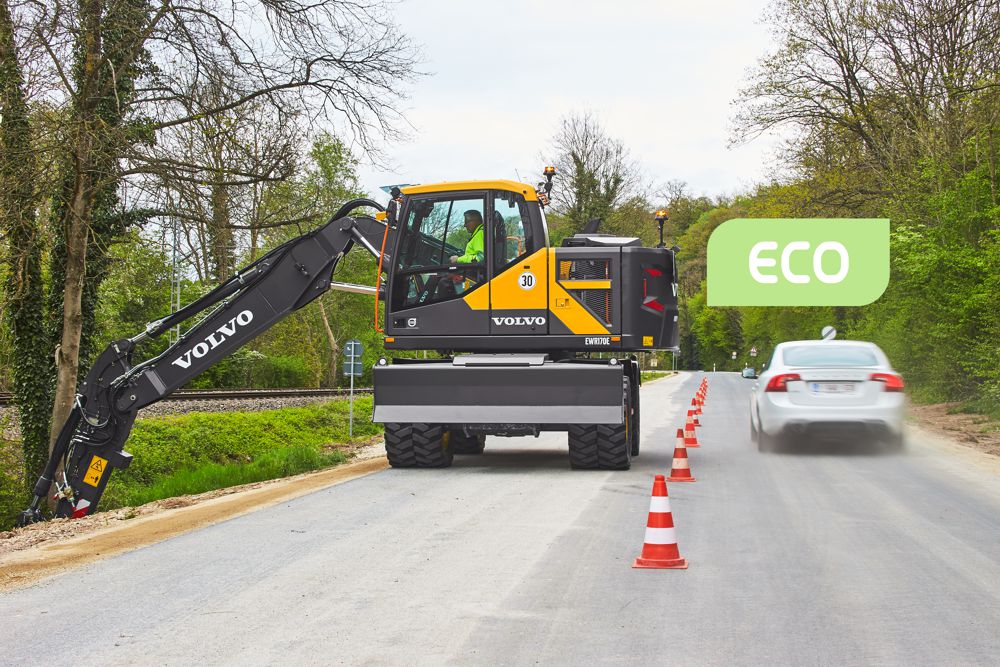VolvoCE improving excavator fuel efficiency
VolvoCE offers many new fuel efficiency technologies and services to help companies reduce spending and become more environmentally friendly in the process.
Fuel is one of the largest expenses for most construction companies. Volvo CE has fitted its machines with fuel saving technology and offers many different fuel saving services. Reducing fuel consumption by improving efficiency not only saves money for companies but also helps reduce their impact on the environment. Every litre of diesel fuel saved means there is 2.6kg less carbon dioxide released into the atmosphere.
Auto engine shutdown
The auto engine shutdown feature operates much in the same way as the auto-idle feature. Instead of switching to idle mode, the machine’s engine will shut down after five minutes of inactivity. After four minutes of inactivity the machine will give a 60 second warning that the engine will shut down. After the sixty second period is up, the machine’s engine will switch off. This feature helps to cut down on emissions when the machine is idle. A machine can be left idle 40-60% of operating time which contributes significantly to fuel consumption.
Eco mode
Many brands offer an eco mode on their machines, however, this usually only lowers the engine’s rpm by 10%. Volvo CE’s eco mode works by controlling the pump flow to avoid inertia overflowing the overload relief valves while maintaining maximum digging and swing efficiency. It reduces flow and pressure loss and improves pump flow control, resulting in a 5% improvement to efficiency. Unlike the eco mode offered by other brands, efficiency is increased without a reduction to the power of the machine.
Fuel efficiency report
Using data from the CareTrack telematics system, Volvo Fuel Efficiency Reports are a valuable tool to help customers maximise the fuel efficiency of their machines. Sensors on the machine monitor fuel consumption and reports are automatically compiled by Volvo’s pre-defined algorithms, presented in an easy to read PDF. The customer doesn’t need to waste time analysing confusing data but can instead quickly and clearly identify areas where fuel efficiency can be improved, set targets and monitor progress.
Auto idling
The auto idle feature on Volvo machines reduces fuel consumption by automatically switching the engine to the high idle setting after five seconds of inactivity. This lowers the engine’s RPM which saves fuel. Five seconds is the default setting for the auto idle feature, but it can be changed to activate from three seconds of idle time up to twenty seconds. The operator need only touch a joystick or foot pedal to return the engine to its normal mode and get it back up to full power. This feature improves fuel efficiency without reducing machine productivity.
Eco Operator training
The Volvo Eco Operator training helps experienced operators to understand ways in which they can operate the machine more efficiently. The programme focuses on fuel consumption while idling, planning the most effective ways to work and correct machine operating and manoeuvring. Eco operator training can reduce companies’ fuel consumption by up to 50%.

























